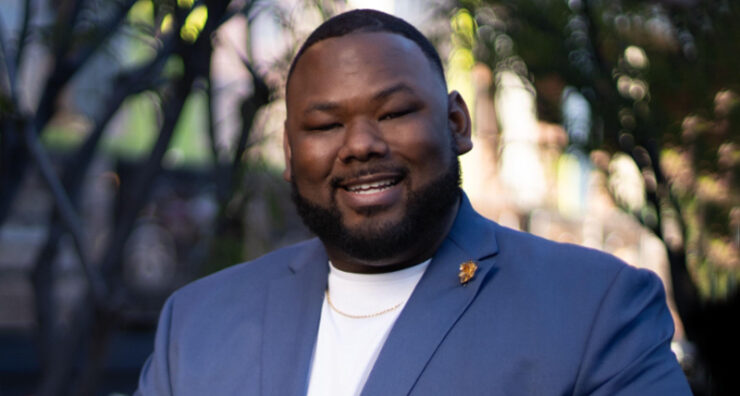 Pragmatic visionary and former Pasadena Mayor Rick Cole has prescribed ten Grand Challenges to transform Pasadena’s future. As a Pasadena resident since 1976, I call for an eleventh: a guaranteed income for all the city’s residents who need it to end poverty in Pasadena. As Martin Luther King stated: “I am now convinced that the simplest approach will prove to be the most effective – the solution to poverty is to abolish it directly by a now widely discussed measure: the guaranteed income.”
Pragmatic visionary and former Pasadena Mayor Rick Cole has prescribed ten Grand Challenges to transform Pasadena’s future. As a Pasadena resident since 1976, I call for an eleventh: a guaranteed income for all the city’s residents who need it to end poverty in Pasadena. As Martin Luther King stated: “I am now convinced that the simplest approach will prove to be the most effective – the solution to poverty is to abolish it directly by a now widely discussed measure: the guaranteed income.”
In Pasadena, where in 2023 the average apartment rents for $3029 a month, and an officially poor family of four has income of less than $2,300 a month, based on a yearly $27,450, it is no surprise that Pasadena’s poverty rate is 13.2%.
Though the concept of guaranteed income is controversial, its roots are deep, its support is broad and growing, and its time has come to Pasadena.
About two thousand years ago, St. Luke wrote: “Neither was there any among them that lacked, for as many as were possessors of lands or houses sold them, and brought the prices of the things that were sold and laid them down at the apostles’ feet. And distribution was made unto every man according as he had need.” Expecting famine, he reported, “Then the disciples, every man according to his ability, determined to send relief unto the brothers which dwelt in Judaea.”
St. Luke may have inspired a social-economic principle popularized centuries later by Karl Marx, co-author of the Communist Manifesto: “From each according to his abilities, to each according to his needs.”
Socialistic? Yes. But a guaranteed income seeks the common good as do public schools and Social Security, as does the “common defense” and the “general welfare” purposes of the U.S. Constitution. And no less a luminary of capitalism than Nobel Prize winning, and well-known conservative economist Milton Friedman supported a similar concept: the negative income tax. Said Friedman: “It would provide an assured minimum to all persons in need, regardless of the reasons for their need.”
Since the late 1960s when Friedman and King wrote, the concept has been gathering strength. Indeed, in 2020, presidential candidate and venture capitalist Andrew Yang proposed his “Universal Basic Income,” plan by which every American citizen would receive $1000 a month. A Yang-like plan has little chance of enactment by this Congress, despite the expanded Child Tax Credit which cut child poverty to its lowest level on record — 5.2% in 2021 but was discontinued due to U.S. Senate politics.
The Constitution’s genius allows for states and localities to experiment with guaranteed income programs. They are being implemented and studied, most notably, in Stockton, California. Today, there are more than forty pilot guaranteed income programs launched or planned in California including the City of Los Angeles and smaller cities such as Santa Monica and El Monte. Despite King’s and Friedman’s differing rationales supporting guaranteed or assured minimum income, evidence from a very recent study of Stockton’s program is tending to prove them right.
One of its authors, Professor Amy Castro of the University of Pennsylvania, reported in early April 2023, “We are able to say definitely that there are certain changes in mental health and physical health and well-being that are directly attributable to the cash.” Co-author Stacia West of the University of Tennessee wrote that guaranteed income “under normative economic and health conditions, does calm income volatility and allay financial, emotional, and psychological distress.” However, “Year 2 (2020) showed us some of those limits, where $500 a month is not a panacea for all social ills.”
Year 2020 was anything but “normative” with Covid aggravating every form of social-economic inequality as manifested in death and disease rates among the poor. And yes, it is true, a guaranteed income is not a panacea for all social ills. No doubt some billionaires suffer from social ills, but poverty income of $27,450 a year is not one of them.
The City of Pasadena with the help of its millionaires and persons of lesser affluence should keep alive the hopes of the poor to get out of poverty. It should allay their “financial, emotional, and psychological distress.” This city’s resources including its private sector have the power to end poverty in Pasadena. It should be done, and its time has come.
Phillip James Argento teaches part-time for UCLA Extension’s Paralegal Program. In 2020, he fully retired as a California superior court judge after 38 years of judicial service. He serves as a member of Pasadena’s Community Oversight Commission. His individual opinion does not speak for the Commission.














 719 comments
719 comments


